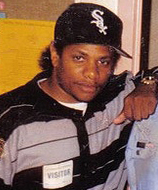
The global fight against HIV/AIDS has seen significant strides, yet its shadow continues to loom large, disproportionately affecting certain communities. Among these, the Black community bears a particularly heavy burden, currently accounting for about half of the people who contract HIV and AIDS, despite comprising only 14% of the U.S. population. This stark reality is a sobering reminder of the continuous need for education, awareness, and accessible treatment to combat a preventable disease. The loss of high-profile stars from within this community serves as a poignant testament to the indiscriminate nature of the virus and the vital importance of collective action.
Indeed, HIV/AIDS is no respecter of race, class, or celebrity status. To date, more than 230,000 African Americans have tragically succumbed to AIDS, and in 2010 alone, 1.2 million people in Africa died from the disease. These figures underscore a profound human cost and a deep-seated challenge that continues to demand our attention. This article embarks on a significant journey, inviting readers to gain a deeper insight into the lives of remarkable Black icons who were taken from us too soon, their brilliance dimmed by AIDS.
We aim to shed a more personal and humane light on this ruthless epidemic by remembering these notable individuals from diverse professional fields such as music, film, fashion, and sports. Their stories, though ending in the shared tragedy of AIDS, offer vastly different chronicles of professional accomplishment, personal journeys, and community contributions. By exploring these variations, we seek to provide a nuanced understanding of their experiences and to humanize the face of AIDS, fostering empathy and understanding in addressing a condition that has affected countless lives.

1. **Arthur Ashe**Arthur Ashe, born July 10, 1943, was a figure of immense historical significance, achieving prominence as the first African-American man to excel in professional tennis. His illustrious career saw him break racial barriers, culminating in him becoming the only Black man to win the Wimbledon singles title. He also earned the distinction of being tennis’s first black millionaire, a testament to his exceptional talent and groundbreaking achievements in a sport that had long been predominantly white.
Beyond his athletic prowess, Ashe was a socially conscious legend who leveraged his celebrity to speak out against injustice. He notably participated in protests against the George H.W. Bush administration’s treatment of Haitian refugees, even facing arrest for his activism. His commitment to social justice extended to creating inner-city tennis programs for youths in cities like Newark, Detroit, Atlanta, Kansas City, and Indianapolis, thereby using his platform to uplift future generations.
Arthur Ashe believed he contracted HIV through a blood transfusion in 1983, a diagnosis that emerged in 1988 after he underwent emergency brain surgery at New York Hospital. Upon learning of his condition, he transformed into a dedicated activist, determined to raise awareness about AIDS. His honesty and courage in facing his illness publicly brought much-needed attention to the epidemic, particularly within the sports world and the Black community.
Women’s tennis great Pam Shriver eloquently spoke of Ashe’s influence after his death, stating, “He was a voice for all the minorities, and that goes for women, too.” She further emphasized that “He brought a level of conscience to the game, whether he was speaking on South Africa or inner-city minorities or exclusionary policies anyplace. Arthur’s influence on tennis didn’t fade after he left the sport.” Arthur Ashe died in 1993 at the age of 49, leaving behind a dual legacy as a sports icon and a tireless humanitarian.
Read more about: Beyond the Script: 12 Iconic Moments Where Genuine Joy, Genius Improv, and Happy Accidents Made Movie History

2. **Eazy-E (Eric Wright)**Eric Wright, famously known as Eazy-E, was born on September 7, 1963, and played a pivotal role in shaping the landscape of hip-hop music. As the founder of Ruthless Records and a member of the iconic group N.W.A. (Ni**as With Attitudes) alongside Dr. Dre and Ice Cube, he is widely credited with inventing the genre of gangsta rap. N.W.A. quickly rose to become the greatest rap act out of the West Coast, captivating audiences with their raw and uncompromising lyrics.
Dubbed the “Godfather of Gangsta Rap,” Eazy-E drew from his own experiences with gang-banging and drug-dealing to craft best-selling hits such as “Eazy-Duz-It” and “We Want Eazy.” His music offered a stark, unfiltered glimpse into the realities of urban life, resonating deeply with a generation and sparking both acclaim and controversy. His impact on popular culture was undeniable, cementing his status as a hip-hop icon.
In a poignant and highly public statement in 1995, Eazy-E announced that he was dying from AIDS. This revelation was accompanied by a candid reflection on his life choices, where he stated, “Before Tomika (his wife at the time) I had other women. I have seven children by six different mothers. Maybe success was too good to me.” This deeply personal confession brought a human face to the epidemic, shattering stigmas and prompting widespread discussion within the music industry and beyond.
Eazy-E died soon after making this announcement, on March 26, 1995, at the tragically young age of 31, due to AIDS-related illnesses. His untimely death sent shockwaves through the music world, serving as a powerful and heartbreaking reminder of the indiscriminate nature of HIV/AIDS and the importance of awareness and safe practices, even for those at the pinnacle of their success.

3. **Max Robinson**Max Robinson, born May 1, 1939, achieved a historic milestone in American journalism, becoming the first black national news anchor. His groundbreaking career saw him co-anchor ABC Nightly News, beginning with ABC’s “World News Tonight” in 1978, a role that positioned him as America’s first major network anchorman. This appointment was a significant moment for representation in media, paving the way for future generations of diverse journalists.
Throughout his career, Robinson was recognized for his journalistic excellence, earning several regional Emmys. Notably, he was awarded for his powerful documentary on black life in Anacostia, titled “The Other Washington,” which showcased his commitment to addressing important social issues. He was known for being outspoken on racial injustice, using his platform to highlight inequalities and advocate for change.
However, despite his public outspokenness on racial matters, Robinson maintained a notable silence regarding his own AIDS status. He succumbed to AIDS-related complications at the age of 49 on December 20, 1988, in Washington, D.C. His private battle with the illness contrasted sharply with his public persona, a complexity that was later reflected upon by others.
In an interview with the Los Angeles Times shortly after Robinson’s death, AIDS activist Don Edwards expressed his sorrow and commented on the missed opportunity. Edwards stated, “I’m saddened in the sense that Max Robinson had a real significant value as a symbol for the black community and it would have been more powerful had Max Robinson been enlisted (in the fight against AIDS) while he was alive, talking about himself as a person with AIDS.” This observation highlighted the potential impact his public acknowledgment could have had in combating stigma and educating the Black community about the disease.
Read more about: Orlando Cepeda: A Hall of Famer’s Odyssey Through Triumph, Turmoil, and Transformative Impact on Baseball

4. **Howard Rollins**Howard Rollins, born October 17, 1950, carved out a distinguished career in acting, leaving a notable impression on both film and television. He gained widespread recognition for his memorable portrayal of Coalhouse Walker, Jr. in the critically acclaimed 1981 film Ragtime, a performance that showcased his immense talent and dramatic range. This role cemented his status as a powerful and compelling presence on screen.
Rollins continued to grace the screens, earning accolades and a loyal following through his diverse acting roles. His performances were often praised for their depth and authenticity, allowing him to connect profoundly with audiences. He demonstrated a versatility that enabled him to tackle complex characters and narratives, solidifying his reputation as a respected actor in Hollywood.
Tragically, Howard Rollins faced significant personal struggles during his life, including a battle with substance abuse. These challenges, while deeply personal, were a contributing factor to the complexities of his later years. His fight against these personal demons cast a somber shadow over a career that had promised even greater heights.
Howard Rollins passed away on December 8, 1996, at the age of 46, due to AIDS-related lymphoma. His death marked another profound loss in the entertainment industry, taking a talented actor whose work resonated with many. His story serves as a reminder of the many layers of struggle some individuals face, both personal and health-related, even as they achieve professional success.
Read more about: Lights, Camera, Tantrums! Unmasking Hollywood’s 14 Most Notorious Actors Who Made Set Life a Nightmare

5. **Sylvester James**Sylvester James, better known simply as Sylvester, was born on September 6, 1947, and became an undisputed icon of the disco era. His electrifying presence and soaring falsetto voice defined a genre, captivating audiences around the world with his unique blend of gospel, soul, and dance music. He was a trailblazer who pushed boundaries both musically and personally.
His lasting legacy is perhaps best encapsulated by his seminal dance classic, “You Make Me Feel (Mighty Real),” released in 1978. This song not only became an international anthem but also remains a timeless staple on dance floors, celebrated for its infectious energy and empowering message. It showcased his ability to fuse powerful vocals with pulsating rhythms, creating an unforgettable sound.
Sylvester was more than just a singer; he was a cultural phenomenon who embodied liberation and self-expression. His flamboyant style and unapologetic authenticity made him a beloved figure, particularly within the LGBTQ+ community, where he was seen as a symbol of pride and resilience. He dared to be himself in an era when such individuality was often met with resistance.
Tragically, this disco star passed away on December 16, 1988, at the age of 41, due to complications from AIDS. His untimely death silenced a voice that had brought so much joy and inspiration to millions. Sylvester’s story underscores the devastating toll of the AIDS epidemic on the artistic community, reminding us of the brilliant talents lost too soon and the enduring power of their musical legacies.
Read more about: Hollywood’s Cold War: 14 Major Actors Who Flat-Out Refused to Work Together Again

6. **Franklyn Seales**Born on July 15, 1952, Franklyn Seales established himself as a recognizable talent in television and film during his career. Audiences fondly remember his portrayal of Dexter Stuffins in the popular sitcom “Silver Spoons.” His role on the show brought him into homes across America, showcasing his comedic timing and contributing to the show’s memorable ensemble.
Beyond his comedic work, Seales also made contributions to film, demonstrating his versatility as an actor. While “Silver Spoons” might be his most widely recognized role, his dedication to the craft extended to various projects, allowing him to explore different facets of dramatic and theatrical expression throughout his professional life. He was a committed performer, bringing depth to his characters.
Tragically, Franklyn Seales’ promising career was cut short when he passed away on May 14, 1990, at the young age of 37. His death was attributed to AIDS-related illnesses, a somber reminder of the epidemic’s reach into the artistic community. His story adds to the poignant narrative of talents lost far too soon, leaving behind a legacy of work that continues to be appreciated by fans.

7. **Larry Riley**Larry Riley carved out a distinguished career in acting, captivating audiences through his roles in both film and television. He gained significant recognition for his portrayal in the compelling film “A Soldier’s Story,” a performance that showcased his powerful dramatic range and brought him critical attention. This role solidified his standing as a serious and capable actor within Hollywood.
He further endeared himself to millions as Frank Williams in the popular prime-time television soap opera “Knots Landing.” Riley made history as the show’s first Black regular, appearing for five impactful seasons. His presence on the show was pivotal, breaking ground for representation and earning him a loyal following. Throughout his career, Riley was an award-winning actor, with a dynamic theatrical career that spanned both Broadway and the screens of Hollywood.
However, in the final years of his life, a dramatic transformation in his physical appearance became apparent to viewers, as he dropped an astonishing 80 pounds from his 220-pound frame. Publicly, he attributed this significant weight loss to kidney issues, but the tragic truth, unbeknownst to most viewers and even many close friends and co-workers, was that he was battling AIDS and slowly succumbing to the disease on national television. His quiet struggle was a testament to the immense personal burden many faced during the height of the epidemic.
Despite the profound challenges to his health, Riley’s passion for acting remained an unwavering source of strength and inspiration. His second wife, Nina, recounted a poignant conversation with his doctor where Riley reportedly asked not, “How long can I live?” but rather, “All right—how long can I work?” This statement beautifully encapsulates his fierce dedication to his craft, even in the face of terminal illness. He found solace and purpose in his art until the very end.
Larry Riley passed away in 1992 at the age of 39, leaving behind a remarkable legacy of performances and a powerful testament to human resilience. His talent was recognized posthumously with a nomination for a “Soap Opera Digest Award” that same year, honoring his enduring impact on television. His story serves as a moving reminder of the courage and quiet dignity with which some individuals navigated their private battles with AIDS, continuing to contribute meaningfully to their fields.
Read more about: The Most Inspiring 14 Sports Victories That Still Give You Chills.

8. **Fela Kuti**Fela Anikulapo Kuti, born on October 15, 1938, created an immortal reputation for himself as the undisputed originator of “Afrobeat” music. This innovative genre was a vibrant fusion of jazz, rhythm and blues, and traditional African rhythms, creating a sound that was both globally appealing and deeply rooted in West African cultural expression. Fela’s music transcended mere entertainment, becoming a powerful vehicle for social and political commentary.
As an international superstar, Fela utilized his politically-conscious music to draw the world’s attention to the lingering strains of European colonialism and governmental corruption in Nigeria and across the continent. His electrifying performances and poignant lyrics not only made millions of people dance but also ignited a fire of awareness and resistance. His songs, often lengthy compositions averaging up to nine minutes, with some extending to 25 minutes or longer, allowed for complex musical arrangements and expansive lyrical narratives, deeply engaging his audiences.
Fela Kuti’s personal life was as unconventional and impactful as his music. The context notes that his “appetite for women may have undermined his greatness,” referencing his controversial marriage to 27 of his dancers. This aspect of his life, while contentious, was part of his larger persona that challenged societal norms and expectations. He lived with an intensity and conviction that permeated every facet of his existence, from his artistic output to his personal relationships.
Tragically, Fela Kuti’s life, rich with musical innovation and activism, came to an end on August 2, 1997, when he died from an AIDS-related illness at the age of 58. His passing marked the loss of a musical titan and a fearless advocate for justice. Fela’s enduring legacy continues to resonate globally, his Afrobeat rhythms still inspiring and his powerful messages still relevant, serving as a testament to his profound influence and the continuing fight for freedom and equality.
Read more about: The Undeniable Voice: How Industry Precedents and Vocal Mastery Affirm Live Authenticity, Beyond Lip-Syncing

9. **Bobby DeBarge**Bobby DeBarge, born on March 5, 1956, was a gifted musician known for his soulful voice and contributions to the R&B scene. He hailed from the famous DeBarge musical family, which produced several talented artists. While his career promised greater heights, his personal struggles unfortunately overshadowed some of his artistic achievements, painting a complex portrait of a talented individual navigating immense pressures.
His battle with substance abuse became a tragic turning point in his life. In 1988, shortly before being incarcerated for drug trafficking, Bobby DeBarge made a profound and private confession to his family: he had contracted AIDS. This revelation was a deeply personal struggle, exacerbated by the stigma surrounding both intravenous drug use and the AIDS epidemic during that era. His courage to share this with his loved ones, even in such difficult circumstances, highlights the personal toll of his illness.
In 1995, Bobby DeBarge’s health gravely deteriorated. He was sent to a hospice in Grand Rapids, Michigan, a testament to the advanced stage of his illness. Surrounded by his family, he spent his final days, finding a measure of peace in their presence. His story underscores the devastating consequences of addiction and how it intersected with the growing health crisis of AIDS, affecting countless lives and families.
Bobby DeBarge passed away on August 16, 1995, at the age of 39, due to complications from AIDS. His death was a poignant loss for his family and the music community, serving as a somber reminder of the human cost of the epidemic. His life and struggles offer a sobering lesson on the interconnectedness of personal choices, societal challenges, and the indiscriminate nature of diseases like AIDS, emphasizing the critical importance of support, empathy, and education.
10. **Kenny Greene**Kenny Greene, born on January 17, 1969, was a highly talented and Grammy-nominated singer-songwriter who left an undeniable mark on contemporary R&B music. His exceptional ability to craft poignant and memorable lyrics, combined with his melodic genius, made him a sought-after talent in the music industry. He was recognized for his immense contributions to shaping the sound of the 1990s R&B landscape.
Greene’s songwriting prowess was behind some of the most iconic hits for celebrated artists, including the legendary Mary J. Blige. He penned chart-topping singles such as “Reminisce” and “Love No Limit,” songs that not only became anthems for a generation but also helped define Blige’s early career and solidified her status as the “Queen of Hip-Hop Soul.” His compositions showcased a deep understanding of emotional narratives and catchy hooks.
Despite his significant behind-the-scenes influence and success as a songwriter, Kenny Greene’s career was tragically cut short. He passed away on October 1, 2001, at the young age of 32, due to complications arising from AIDS. His untimely death represented a profound loss for the music industry, silencing a creative voice that had so much more to offer. He was a prolific talent whose potential was immense, and his absence was deeply felt.
Kenny Greene’s story is a testament to the silent battles many artists fought during the AIDS epidemic. His contributions to music continue to be cherished, with his songs remaining beloved classics. His legacy serves as a powerful reminder of the artistic brilliance lost to the disease and underscores the importance of ongoing efforts in HIV/AIDS awareness, prevention, and compassionate support for those affected, ensuring that future generations are not deprived of such incredible talents.
The stories of Franklyn Seales, Willi Smith, Larry Riley, Fela Kuti, Bobby DeBarge, and Kenny Greene, much like those of Alvin Ailey, Arthur Ashe, Eazy-E, Max Robinson, Howard Rollins, and Sylvester James, resonate deeply within the ongoing narrative of HIV/AIDS. These remarkable individuals, spanning diverse fields from acting and fashion to music and sports, each contributed immensely to their respective crafts and to the cultural tapestry of the Black community. Their journeys, though varied, culminate in the shared tragedy of lives cut short by a preventable disease, underscoring the indiscriminate nature of HIV/AIDS.
Their legacies serve as potent reminders of the talent, joy, and insight lost to the epidemic. While some openly confronted their illness, others battled it privately, reflecting the profound stigma and personal courage required to face such a diagnosis during their time. Each biography, a testament to a life lived with purpose and passion, also carries an urgent call to action. The disproportionate impact on the Black community, highlighted at the outset of this article, remains a critical challenge.
Read more about: The Untimely End of a Nashville Icon: Investigating the Fatal Plane Crash Claiming Songwriter Brett James and Family
As we commemorate these stars, their stories implore us to intensify our commitment to education, advocate for accessible testing and treatment, and foster an environment of empathy and understanding. Their memories should inspire us to continue the fight against HIV/AIDS, ensuring that future generations are protected from its devastating reach and that no more brilliant lives are dimmed prematurely. Let their enduring contributions fuel our collective resolve to end this epidemic, honoring their memory through sustained action and unwavering compassion.




